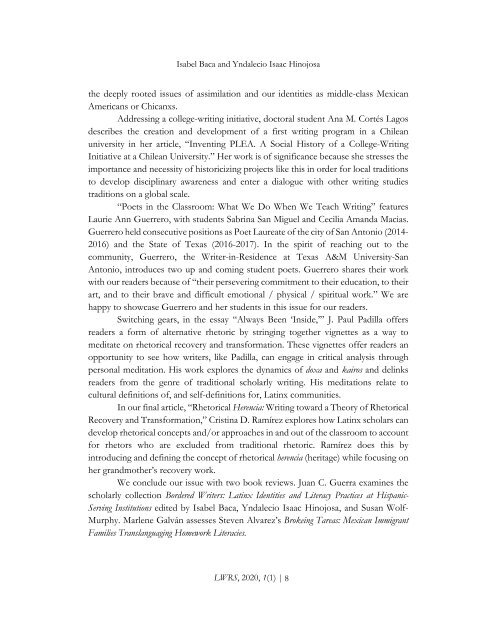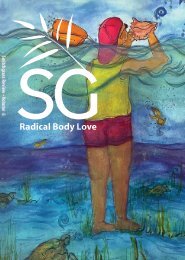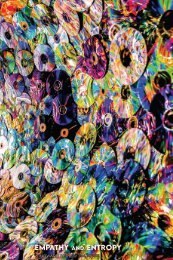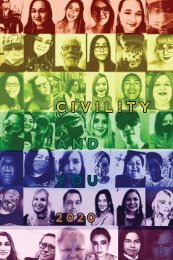LWRS June 2020 Volume 1, Issue 1
Inaugural Issue co-edited by Yndalecio Isaac Hinojosa and Isabel Baca
Inaugural Issue co-edited by Yndalecio Isaac Hinojosa and Isabel Baca
Create successful ePaper yourself
Turn your PDF publications into a flip-book with our unique Google optimized e-Paper software.
Isabel Baca and Yndalecio Isaac Hinojosa<br />
the deeply rooted issues of assimilation and our identities as middle-class Mexican<br />
Americans or Chicanxs.<br />
Addressing a college-writing initiative, doctoral student Ana M. Cortés Lagos<br />
describes the creation and development of a first writing program in a Chilean<br />
university in her article, “Inventing PLEA. A Social History of a College-Writing<br />
Initiative at a Chilean University.” Her work is of significance because she stresses the<br />
importance and necessity of historicizing projects like this in order for local traditions<br />
to develop disciplinary awareness and enter a dialogue with other writing studies<br />
traditions on a global scale.<br />
“Poets in the Classroom: What We Do When We Teach Writing” features<br />
Laurie Ann Guerrero, with students Sabrina San Miguel and Cecilia Amanda Macias.<br />
Guerrero held consecutive positions as Poet Laureate of the city of San Antonio (2014-<br />
2016) and the State of Texas (2016-2017). In the spirit of reaching out to the<br />
community, Guerrero, the Writer-in-Residence at Texas A&M University-San<br />
Antonio, introduces two up and coming student poets. Guerrero shares their work<br />
with our readers because of “their persevering commitment to their education, to their<br />
art, and to their brave and difficult emotional / physical / spiritual work.” We are<br />
happy to showcase Guerrero and her students in this issue for our readers.<br />
Switching gears, in the essay “Always Been ‘Inside,’” J. Paul Padilla offers<br />
readers a form of alternative rhetoric by stringing together vignettes as a way to<br />
meditate on rhetorical recovery and transformation. These vignettes offer readers an<br />
opportunity to see how writers, like Padilla, can engage in critical analysis through<br />
personal meditation. His work explores the dynamics of doxa and kairos and delinks<br />
readers from the genre of traditional scholarly writing. His meditations relate to<br />
cultural definitions of, and self-definitions for, Latinx communities.<br />
In our final article, “Rhetorical Herencia: Writing toward a Theory of Rhetorical<br />
Recovery and Transformation,” Cristina D. Ramírez explores how Latinx scholars can<br />
develop rhetorical concepts and/or approaches in and out of the classroom to account<br />
for rhetors who are excluded from traditional rhetoric. Ramírez does this by<br />
introducing and defining the concept of rhetorical herencia (heritage) while focusing on<br />
her grandmother’s recovery work.<br />
We conclude our issue with two book reviews. Juan C. Guerra examines the<br />
scholarly collection Bordered Writers: Latinx Identities and Literacy Practices at Hispanic-<br />
Serving Institutions edited by Isabel Baca, Yndalecio Isaac Hinojosa, and Susan Wolf-<br />
Murphy. Marlene Galván assesses Steven Alvarez’s Brokeing Tareas: Mexican Immigrant<br />
Families Translanguaging Homework Literacies.<br />
<strong>LWRS</strong>, <strong>2020</strong>, 1(1) | 8





